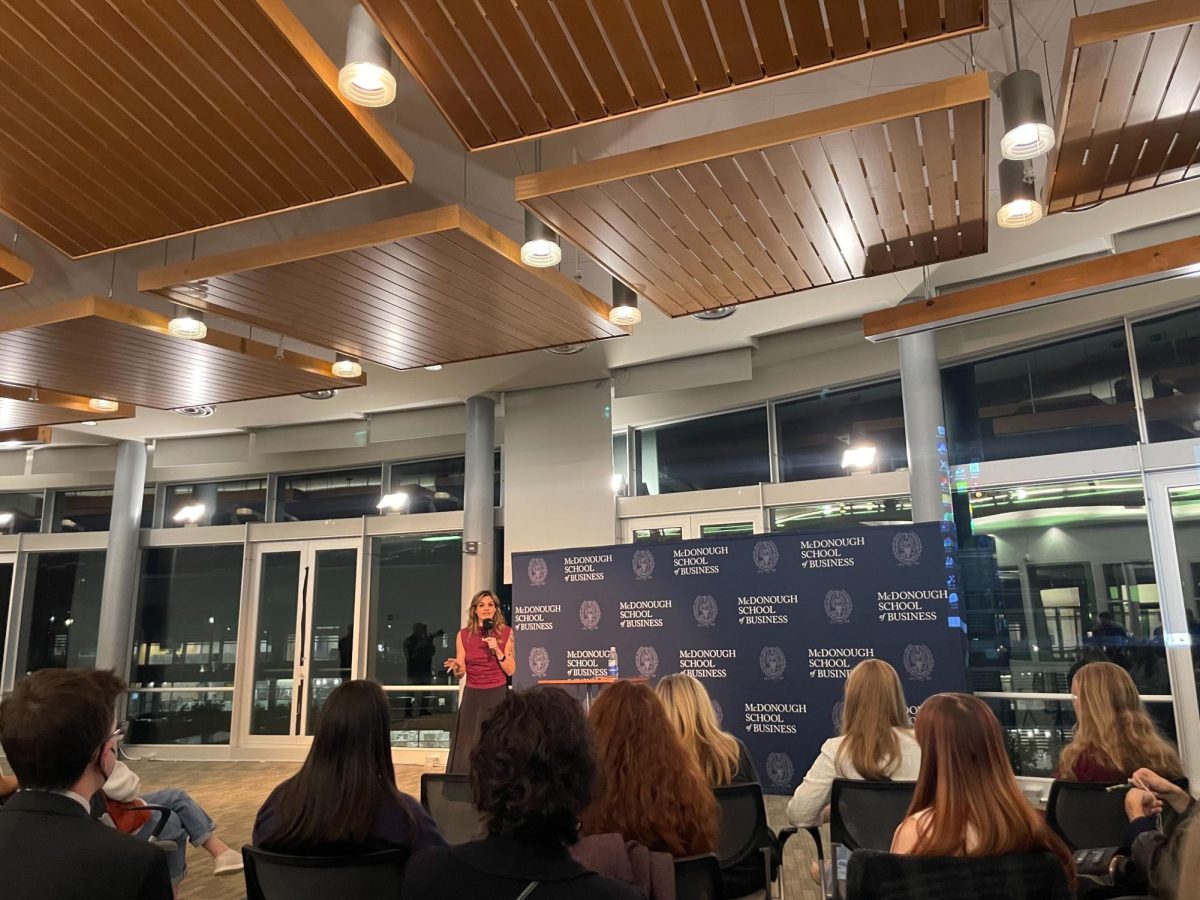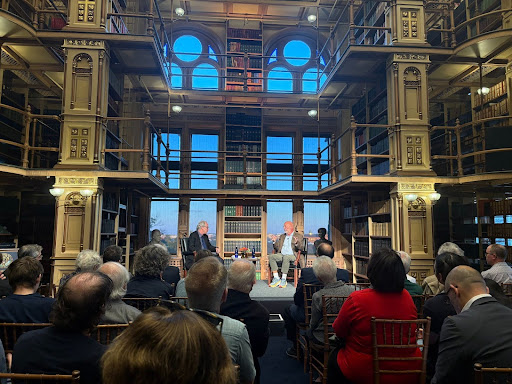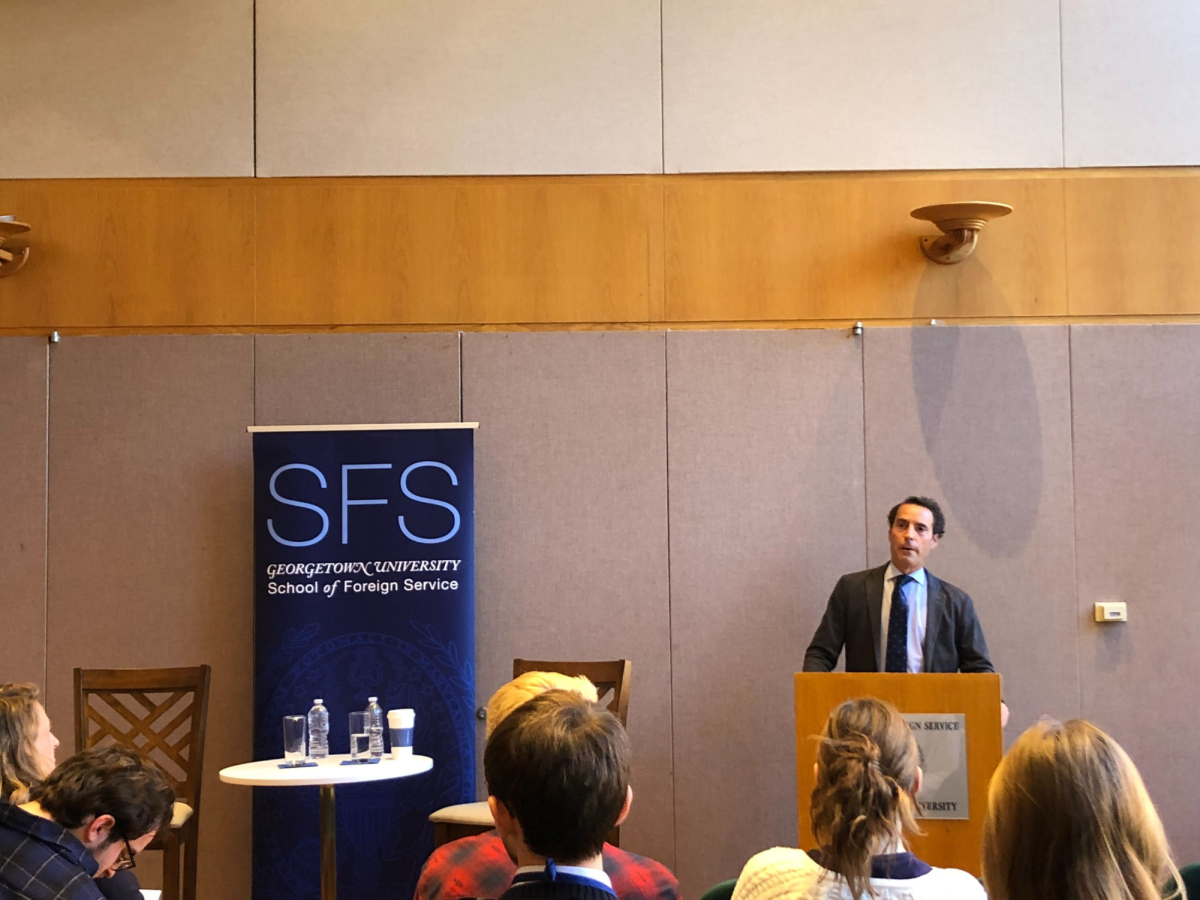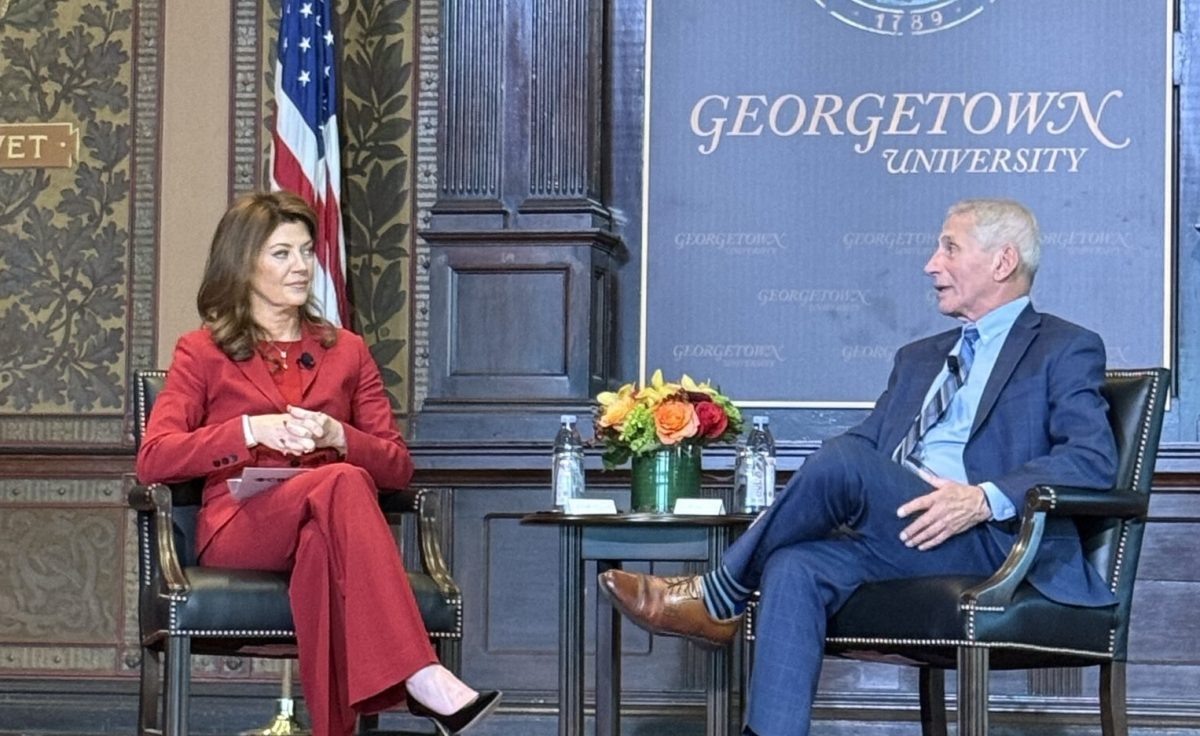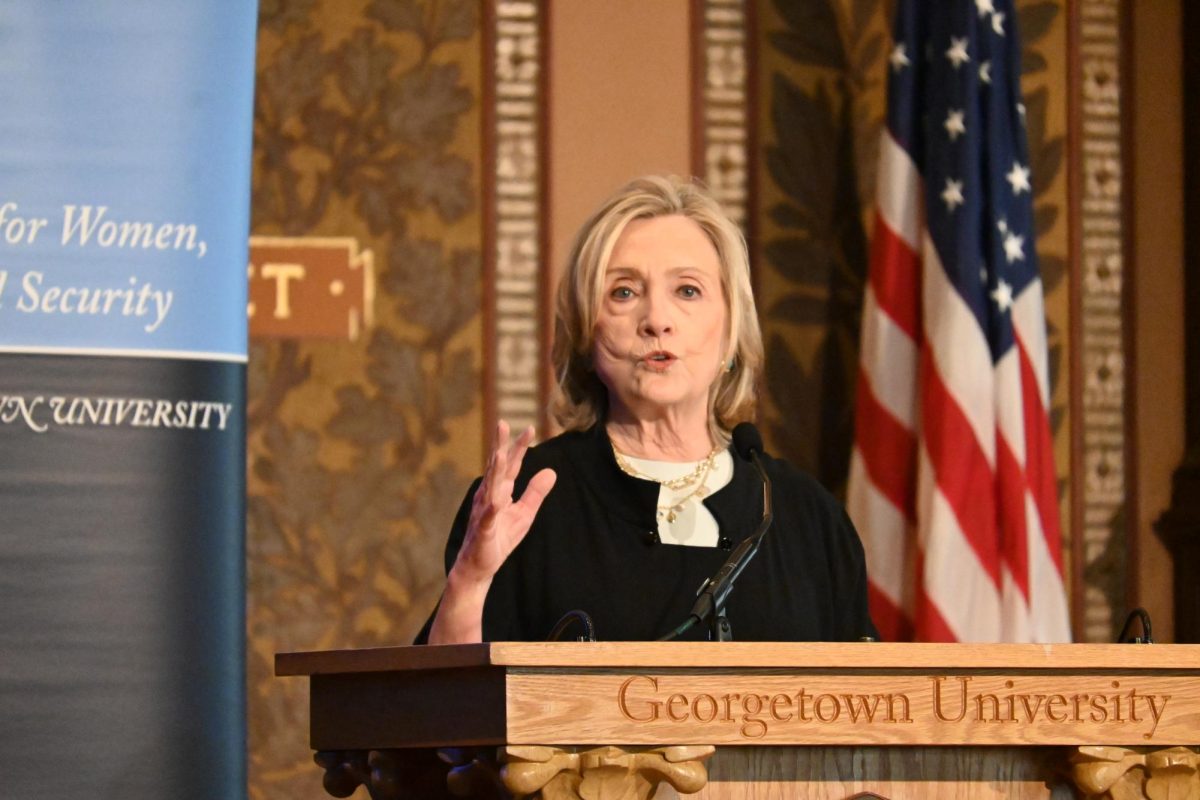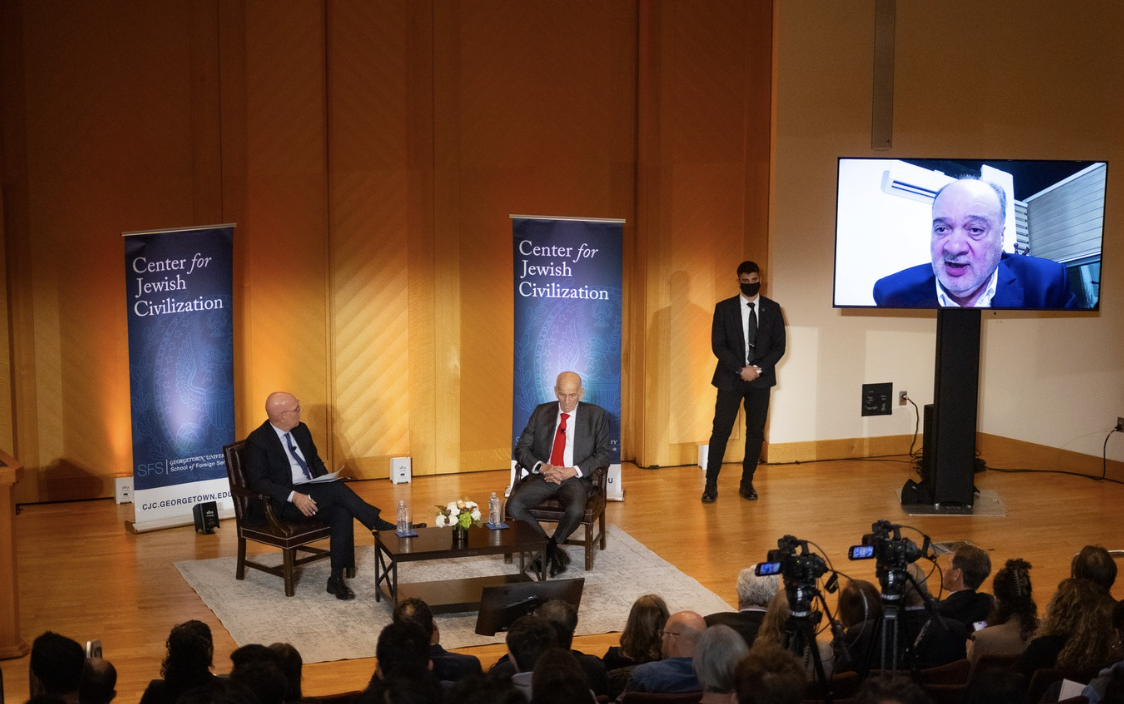A history professor explored his forthcoming book and urged historians to recognize anti-colonialist history narratives in a Feb. 19 webinar.
Esmat Elhalaby, a historian of colonialism and assistant professor of transnational history at the University of Toronto, discussed his recent work, “Parting Gifts of Empire: Palestine and India at the Dawn of Decolonization.” Fida Adely, director of the Georgetown University Center for Contemporary Arab Studies (CCAS), which conducts research and hosts events related to the Arab world, moderated the event.
Adely said the book’s images and examples are important in contextualizing the time period Elhalaby discusses in his writing.
“It’s important that there are such powerful images — such a powerful intervention and disruption of thought,” Adely said. “It’s helpful for us to think about what the implications of this history that you’ve written are for us as we navigate the present moment.”
Elhalaby’s book focuses on Britain’s post-World War II partitions of two of its colonial territories: Mandatory Palestine, the area including what is now Israel, Gaza and the West Bank, and British India, the Indian subcontinent including what is now India, Pakistan and Bangladesh. Mandatory Palestine was divided between Egypt, Jordan and the new state of Israel, while British India was partitioned into India and Pakistan. Both partitions triggered mass migration and widespread violence.
Elhalaby said his book uses the partitions of Mandatory Palestine and British India to examine the history and politics of anti-colonialism.
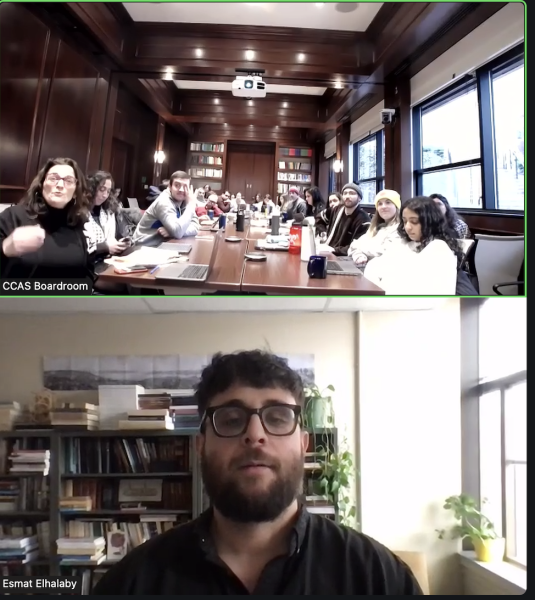
“A great deal of historical work has tracked the mobility of British imperial bureaucrats and imperialist ideas in the making of the partitions of Palestine in India,” Elhalaby said at the event. “Less attention, however, has been paid to those who sought, in one way or another, to stop those events, or call them ‘structures,’ from developing in a way that they did.”
According to Elhalaby, recentering the histories of partition is essential to better understanding nationalist movements during the colonial and postcolonial periods.
“Attention to the activities and ideas of Africans and Asians themselves, then, might be useful for rewriting the history of empires and attempts to end empires. I try to capture the reading practices and attachments to social, cultural and political activity that characterized nationalist intellectuals who sought to serve an international cause,” Elhalaby said.
Elhalaby said academics in Africa and Asia combatted widely-spread, false theories through collaboration and creation.
“It was extremely difficult for African and Asian intellectuals to counteract those spurious theories and histories — how did they do it?” Elhalaby said. “The answer was often in their own institutions, their own periodicals, departments, institutes and colleges.”
Elhalaby added that academic institutions were often closely linked to colonial enterprises, rendering such work difficult.
“We were bequeathed, quite reluctantly and at the cost of our own institutions, a set of schools and institutes attached to the Christian missionary enterprise, and the companies, armies and states of European capitalists,” Elhalaby said.
“Beginning in the 19th century, and accelerated in the middle of the 20th, there was a concentrated effort to produce new knowledge beyond the imperial frame — in Beirut and Jerusalem, there were deliberately conceived alternatives to the sectarian missionary schools in their midst, and meetings between intellectuals provided the opportunity to make these efforts collaborative,” he added.
Adely said resistance to colonialism was in part defined by the interactions and collaborations in academic institutions that were intended to subvert European establishments.
“The colonial period was a period that created a set of encounters that were different and that led to this kind of South-South intellectual exchange,” Adely said. “There needs to be this critique of the idea of encounters, the idea being that there had always been interaction throughout Asia, Africa, but that there was a new kind of interaction that was created in this context of colonialism and anti-colonialism.”
Elhalaby said that students and scholars need to actively resist the ideas that are presented from a colonialist perspective.
“The scholarly practice and intellectual culture in North America and Europe and the global North — the imperialist core — need to practice some humility,” Elhalaby said. “Not just in the face of the past that I seek to account for in this book, but in honor of our comrades and colleagues, living and recently deceased, who resist against actually-existing colonialism today.”
Caleigh Keating contributed to reporting.


